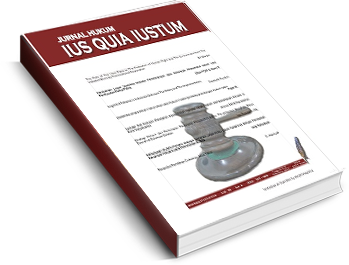Main Article Content
Abstract
The main problems of this research are: first, the conceptual definition of fatwa in Islamic law in general and sharia financial law specifically; second, the legality or binding force of fatwa in sharia economic law; and third, the possibility of judicial review for fatwa issued by National Sharia Board (DSN). This research is a normative juridical study based on the primary, secondary, and tertiary legal sources. The conclusion drawn in this research is: first, fatwa is a legal opinion issued by an individual or a particular institution which has purpose or function to present any opinions regarding the matters related to life aspectsby considering the sharia principles or Islamic doctrines; second, the legality of fatwa appears due to the statement of the existing regulation stating that only fatwa issued by DSN which becomes the reference of sharia banking businesses. Even if DSN is considered as a non-government institution due to which its regulatory products do not have binding force unlike the regulations issued by the governmental institutions in general, fatwa still has its own binding nature, though substantively it is due to the existence of the Regulation of Bank of Indonesia related to the sharia banking provisions since if there is anything regarding sharia matters, Bank of Indonesia shall adopt the DSN fatwa. Third, as the consequence of the binding force, in which the government regulation might be legally reviewed, fatwa is also possible to be an object of a request for judicial review.
Keywords
Article Details
Authors who publish with this journal agree to the following terms:
a. Authors retain copyright and grant the journal right of first publication with the work simultaneously licensed under a Creative Commons Attribution License that allows others to share the work with an acknowledgement of the work's authorship and initial publication in this journal.
b. Authors are able to enter into separate, additional contractual arrangements for the non-exclusive distribution of the journal's published version of the work (e.g., post it to an institutional repository or publish it in a book), with an acknowledgement of its initial publication in this journal.




